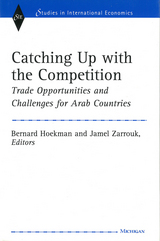

Americans have witnessed inconsistent and seemingly dramatic turnabouts in legislators' attitudes toward trade, with strong bipartisan support for free trade and the Uruguay Round in one instant and heated debate over participation in the World Trade Organization the next. Martha L. Gibson systematically traces the competing forces that interject conflict into an overall consensus on the value of a liberalized trade policy.
Cutting through the tangled web of congressional politics, Gibson shows why it is impossible to understand trade legislation without first understanding how electoral politics and the institutional rules of Congress distort legislators' interests, incentives, and policy goals. Gibson's book clearly shows that trade legislation is not made in a vacuum but is just one in a series of simultaneous games with competing goals in which legislators engage to satisfy the conflicting demands of constituents.
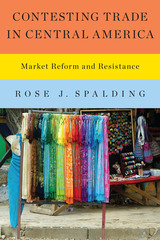
In 2004, the United States, five Central American countries, and the Dominican Republic signed the Central American Free Trade Agreement (CAFTA), signaling the region’s commitment to a neoliberal economic model. For many, however, neoliberalism had lost its luster as the new century dawned, and resistance movements began to gather force. Contesting Trade in Central America is the first book-length study of the debate over CAFTA, tracing the agreement’s drafting, its passage, and its aftermath across Central America.
Rose J. Spalding draws on nearly two hundred interviews with representatives from government, business, civil society, and social movements to analyze the relationship between the advance of free market reform in Central America and the parallel rise of resistance movements. She views this dynamic through the lens of Karl Polanyi’s “double movement” theory, which posits that significant shifts toward market economics will trigger oppositional, self-protective social countermovements. Examining the negotiations, political dynamics, and agents involved in the passage of CAFTA in Costa Rica, El Salvador, and Nicaragua, Spalding argues that CAFTA served as a high-profile symbol against which Central American oppositions could rally. Ultimately, she writes, post-neoliberal reform “involves not just the design of appropriate policy mixes and sequences, but also the hard work of building sustainable and inclusive political coalitions, ones that prioritize the quality of social bonds over raw economic freedom.”
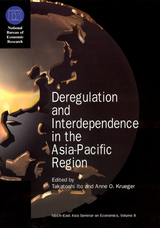
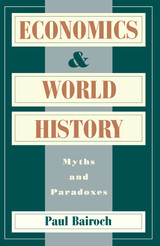
"A challenging and readable introduction to some major controversial themes in modern international economic history."—Peter J. Cain, International History Review
"Paul Bairoch sheds fascinating light on many of the accepted truths of modern economic history: an intriguing account, well executed."—Alfred L. Malabre, Jr., Economics Editor, Wall Street Journal
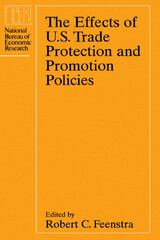
The volume concludes that some policies can act to both protect imports and promote exports, that the threat of protectionist policies can often have effects that are as pronounced as their implementation, and that regulatory policy has as great an impact on trade and investment patterns as does trade policy itself. It will be of crucial interest to international trade economists, policy specialists, and political scientists.
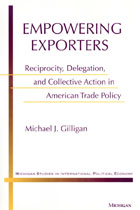
Michael Gilligan argues that liberalization has succeeded because it has been reciprocal with liberalization in other countries. Our trade barriers have been reduced as an explicit quid pro quo for reduction of trade barriers in other countries. Reciprocity, Gilligan argues, gives exporters the incentive to support free trade policies because it gives them a clear gain from free trade and thus enables the exporters to overcome collective action problems. The lobbying by exporters, balancing the interests of groups seeking protection, changes the preferences of political leaders in favor of more liberalization.
Gilligan tests his theory in a detailed exploration of the history of American trade policy and in a quantitative analysis showing increases in the demand for liberalization as the result of reciprocity in trade legislation from 1890 to the present. This book should appeal to political scientists, economists, and those who want to understand the political underpinnings of American trade policy.
Michael J. Gilligan is Assistant Professor of Politics, New York University.

The Central American region is a vital ecological resource that provides environmental balance for the rest of the American continents. Using comprehensive surveys and statistical studies, this volume presents an evaluation of the region's deforestation, sustainable agriculture, tourism, emerging carbon markets, trade, and growth.
By comparing and contrasting policies applied by other countries with similar environmental characteristics, the contributors argue that Central American governments must learn from the results of these policies in order to manage resources, foster sustainability and competitiveness, and procure positive results.
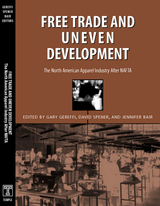

The first essay assesses U.S. interests in economic globalization, the second examines recent steps toward free trade at the multilateral and regional levels, and the next three offer an in-depth critique of U.S. regional free trade objectives in the Americas, across the Pacific, and possibly with Europe. The final essay presents a multilateral/regional synthesis for going from here to free trade over the coming decade.
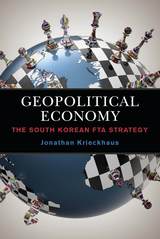
Geopolitical Economy examines the significance and nature of free trade agreements (FTAs), the primary policy tool through which modern nations seek access to international markets and promote economic growth. The book focuses specifically on how South Korea, the world’s leader in the number and significance of FTAs as well as the world’s sixth largest export economy, uses FTAs.
Jonathan Krieckhaus argues that geopolitics—the struggle between powerful nations over specific geographic regions around the globe—influenced FTA strategy and economic policy in South Korea and beyond. This perspective illustrates the security approach to FTAs, but adds that the geographic specificity of security concerns deeply shape FTA policy.
Geopolitical Economy also looks at Korean FTAs through the lens of development strategy. South Korea is singularly successful in garnering FTAs with all three players in the global economy: the United States, the European Union, and China. This unprecedented success was built on a strong commitment from three consecutive Korean presidential administrations, each operating within a favorable state-society context that enjoyed the existence of a centralized and effective trade bureaucracy.

Environmental groups for the first time formalized their role in shaping U.S. and international trade policy during their involvement in NAFTA negotiations. John J. Audley identifies the political forces responsible for forging this new intersection of trade and environment policy during NAFTA negotiations, analyzes the achievements of the environmentalists, and explores their prospects for influencing future trade policy.
The need to reconcile the conflicting paradigms of economic expansion through free trade and that of limited sustainable development played a significant part in the political debate. Reluctant to acknowledge any relationship between these two principles, traditional trade policy actors were forced to include environmental interest groups in negotiations when the latter seriously threatened the treaty by aligning themselves with other anti-NAFTA interest groups, particularly labor. Other environmental groups worked with trade advocates to secure compromises in the agreement. The final bill included unprecedented environmental provisions, but not without serious infighting within the environmentalist community.
Drawing on his access to private as well as public documents exchanged among participants, Audley explores the interactions among the political actors. He explains how political compromises between environmental groups and trade policy elites came about, focusing in particular on the roles played by eleven national environmental organizations. In identifying their accomplishments, he concludes that although the environmentalists won some procedural changes, they failed to modify the norm of unfettered growth as the guiding principle of U.S. trade policy.
The first book to probe the role that environmental politics play in trade policy, this volume offers new insights into the political effectiveness of environmental organizations.
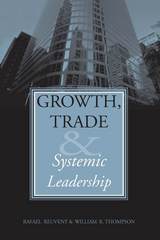
Rafael Reuveny is Associate Professor in the School of Public and Environmental Affairs at Indiana University. William R. Thompson is Professor of Political Science at Indiana University.

Where Latin American government leaders once looked at free trade agreements as solely about trade and trading policies, they are increasingly viewing them as the next beacon of hope in the long and arduous road of economic reform.
Integrating the Americas: FTAA and Beyond discusses how these governments have become embroiled in a larger set of issues affecting both institutions. This work, based on a conference sponsored by the Inter-American Development Bank and the David Rockefeller Center for Latin American Studies, examines how this free trade process is surging ahead, while at the same time taking on a broader set of issues including institutional reform, transparency, the environment, labor, and social cohesion. The payoffs to the strategy of liberalization, privatization, and openness have been meager and disappointing to date. Will the FTAA be able to reverse this and allow Latin America to reap the benefits of globalization?

By a vote of 61 to 38, the Senate joined the House in declaring that "Congress approves...the North American Free Trade Agreement." The vote was virtually unnoticed, since the real battle over NAFTA was in the House. But there is a puzzle here. The President, the Framers assure us, "shall have Power, by and with the Advice and Consent of the Senate, to make Treaties, provided two thirds of the Senators present concur." Whatever happened to the Treaty Clause?
Bruce Ackerman and David Golove tell the story of the Treaty Clause's being displaced in the twentieth century by a modern procedure in which the House of Representatives joins the Senate in the process of consideration, but simple majorities in both Houses suffice to commit the nation. This is called the Congressional-Executive Agreement, and is a response to a sea change in public opinion during and after World War II.
This agreement substituted for a failed constitutional amendment that would have required all treaties to be approved by majorities in both Houses rather than by two-thirds of the Senate. The modern Congressional-Executive Agreement was self-consciously developed in order to make formal constitutional amendment unnecessary. So, is NAFTA constitutional?
This book is reprinted from the Harvard Law Review.
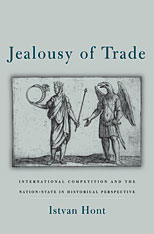
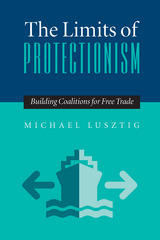
Conventional wisdom holds that free trade is economically beneficial to nations. But this does not prevent industries and interest groups from lobbying their governments for protection, which creates a fear of electoral backlash among politicians hoping to promote free trade. The Limits of Protectionism demonstrates how governments can attain those economic benefits while avoiding the political costs.
Michael Lusztig’s theoretical model focuses on a process by which protectionists can be pushed to restructure and compete in a global economy. In this process, a small cutback in domestic protection leads to lost market shares at home; producers must then turn to overseas exports, and, as the size of foreign profits grow, former protectionists become active advocates for more and greater free trade opportunities.
In a wide-ranging array of case studies—from nineteenth-century Britain to Depression-era United States to contemporary New Zealand, Australia, Brazil, Canada, Chile, and Mexico—Lusztig reveals that, if skillfully handled, governments can eliminate the obstacles to free trade and enjoy continued economic growth without fear of protectionist groups seeking revenge at the ballot box.
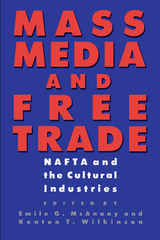
As United States television programs, movies, music, and other cultural products make their way around the globe, a vigorous debate over "cultural imperialism" is growing in many countries. This book brings together experts in economics, sociology, anthropology, the humanities, and communications to explore what effects the North American Free Trade Agreement will have on the flow of cultural products among Mexico, the United States, and Canada.
After an overview of free trade and the cultural industries, the book covers the following topics: dominance and resistance, cultural trade and identity in relation to Mexico and to French Canada, and intellectual property rights. Based on present trends, the contributors predict that there will be a steadily increasing flow of cultural products from the United States to its neighbors.
This book grew out of a 1994 conference that brought together leaders of the cultural industries, policy makers, and scholars. It represents state-of-the-art thinking about the global influence of U.S. cultural industries.

In our increasingly globalized world, U.S. trade policy stands at the intersection of foreign and domestic affairs. This book explains trade policy in terms of domestic politics, presenting a concise account of its origins and political significance.
Although trade policy is a component of foreign policy, Philip A. Mundo explains how it is rooted in the domestic policy process and carries with it enormous implications for domestic affairs. He reviews the growing importance of trade policy since World War II — particularly over the past twenty years — and shows how recent policies like NAFTA are shaped by the domestic agenda.
Mundo explains trade policy as the product of a three-stage process comprising agenda setting, program adoption, and implementation. He reviews this process in terms of the ideas that inform trade policy, the interests that seek to influence it, and the institutions that shape it. He also addresses the importance of specific measures, such as administrative relief and trade sanctions.
This book distills the essence of the trade policy process into a concise, innovative framework accessible to students and general readers. With the growing importance of trade policy, it makes explicit many of the subtleties surrounding policymaking while fully explicating the legal and international context in which trade operates.
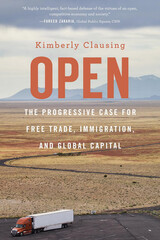
A Financial Times Best Economics Book of the Year
A Foreign Affairs Best Book of the Year
A Fareed Zakaria GPS Book of the Week
“A highly intelligent, fact-based defense of the virtues of an open, competitive economy and society.”
—Fareed Zakaria
“A vitally important corrective to the current populist moment…Open points the way to a kinder, gentler version of globalization that ensures that the gains are shared by all.”
—Justin Wolfers
“Clausing’s important book lays out the economics of globalization and, more important, shows how globalization can be made to work for the vast majority of Americans. I hope the next President of the United States takes its lessons on board.”
—Lawrence H. Summers, former Secretary of the Treasury
“Makes a strong case in favor of foreign trade in goods and services, the cross-border movement of capital, and immigration. This valuable book amounts to a primer on globalization.”
—Richard N. Cooper, Foreign Affairs
Critics on the Left have long attacked open markets and free trade agreements for exploiting the poor and undermining labor, while those on the Right complain that they unjustly penalize workers back home. Kimberly Clausing takes on old and new skeptics in her compelling case that open economies are actually a force for good. Turning to the data to separate substance from spin, she shows how international trade makes countries richer, raises living standards, benefits consumers, and brings nations together. At a time when borders are closing and the safety of global supply chains is being thrown into question, she outlines a clear agenda to manage globalization more effectively, presenting strategies to equip workers for a modern economy and establish a better partnership between labor and the business community.
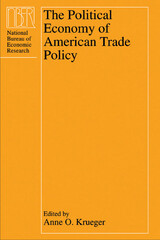
Eight analytical histories of the automobile, steel, semiconductor, lumber, wheat, and textile and apparel industries demonstrate that trade barriers rarely have unequivocal benefits and may be counterproductive. They show that criteria for awarding protection do not take into account the interests of consumers or other industries and that political influence and an organized lobby are major sources of protection.
Based on these findings, a final essay suggests that current policy fails to consider adequately economic efficiency, the public good, and indirect negative effects. This volume will interest scholars in economics, business, and public policy who deal with trade issues.
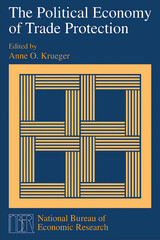
In case studies of trade barriers imposed during the 1980s to help the steel, semiconductor, automobile, lumber, wheat, and textile and apparel industries, the contributors trace the evolution of efforts to obtain protection, protectionist measures, and their results. A chapter assessing the common themes that emerge from the studies concludes that the focus of current trade law is exclusively on the individual protection-seeking industries, with little regard for indirect effects on using industries or for consumers. Reform could usefully take these effects into account.
This volume will interest policymakers, business executives, and anyone interested in trade policy formulation and practice.
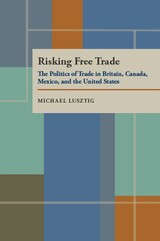
There are few issues as politically explosive as the liberalization of trade, as recent controversies in the United States, Canada, and Mexico have shown. While loosening trade restrictions may make sense for a nation’s economy as a whole, it typically alienates powerful vested interests. Those interests can exact severe political costs for the government that enacts change. So why accept the risk?
Michael Lusztig contructs a model to determine why and under what conditions governments will take the free trade gamble. Lusztig uses his model to explain shifts to free trade in four cases: Britain’s repeal of the Corn Laws; the United States’ enactment of the Reciprocal Trade Agreements Act (1934); Canada’s decision to initiate continental free trade with the United States in 1985; and Mexico’s decision to pursue the North American Free Trade Agreement (NAFTA) in 1990.
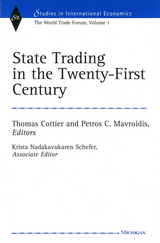
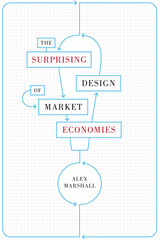
The “free market” has been a hot topic of debate for decades. Proponents tout it as a cure-all for just about everything that ails modern society, while opponents blame it for the very same ills. But the heated rhetoric obscures one very important, indeed fundamental, fact—markets don’t just run themselves; we create them.
Starting from this surprisingly simple, yet often ignored or misunderstood fact, Alex Marshall takes us on a fascinating tour of the fundamentals that shape markets and, through them, our daily economic lives. He debunks the myth of the “free market,” showing how markets could not exist without governments to create the structures through which we assert ownership of property, real and intellectual, and conduct business of all kinds. Marshall also takes a wide-ranging look at many other structures that make markets possible, including physical infrastructure ranging from roads and railroads to water systems and power lines; mental and cultural structures such as common languages and bodies of knowledge; and the international structures that allow goods, services, cash, bytes, and bits to flow freely around the globe.
Sure to stimulate a lively public conversation about the design of markets, this broadly accessible overview of how a market economy is constructed will help us create markets that are fairer, more prosperous, more creative, and more beautiful.
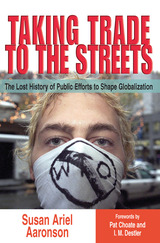
The book explores how trade agreement critics built a fluid global movement to redefine the terms of trade agreements (the international system of rules governing trade) and to redefine how citizens talk about trade. (The "terms of trade" is a relationship between the prices of exports and of imports.) That movement, which has been growing since the 1980s, transcends borders as well as longstanding views about the role of government in the economy. While many trade agreement critics on the left say they want government policies to make markets more equitable, they find themselves allied with activists on the right who want to reduce the role of government in the economy.
Aaronson highlights three hot-button social issues--food safety, the environment, and labor standards--to illustrate how conflicts arise between trade and other types of regulation. And finally she calls for a careful evaluation of the terms of trade from which an honest debate over regulating the global economy might emerge.
Ultimately, this book links the history of trade policy to the history of social regulation. It is a social, political, and economic history that will be of interest to policymakers and students of history, economics, political science, government, trade, sociology, and international affairs.
Susan Ariel Aaronson is Senior Fellow at the National Policy Institute and occasional commentator on National Public Radio's "Morning Edition."
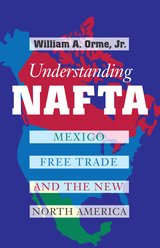
Understanding NAFTA was first published in 1993 as Continental Shift: Free Trade & the New North America. This edition includes a new introduction that brings the NAFTA story up through 1995.
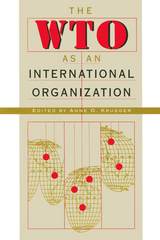
"[T]his book is a tour de force, with consistently fine papers by leading experts, and it is worthy of any bookshelf." —Joel P. Trachtman, American Journal of International Law
"This latest conference volume from the National Bureau of Economic Research is likely to be the definitive reference work on the WTO for years to come. . . . Specialists and non-specialists alike will gain a great deal from a careful reading of this impressive volume." —John Ravenhill, Australian Journal of Political Science
"For anyone who is interested in the further development of the rule system for the world economy, this book is a must." —Horst Siebert, Review of World Economics
READERS
Browse our collection.
PUBLISHERS
See BiblioVault's publisher services.
STUDENT SERVICES
Files for college accessibility offices.
UChicago Accessibility Resources
home | accessibility | search | about | contact us
BiblioVault ® 2001 - 2024
The University of Chicago Press









